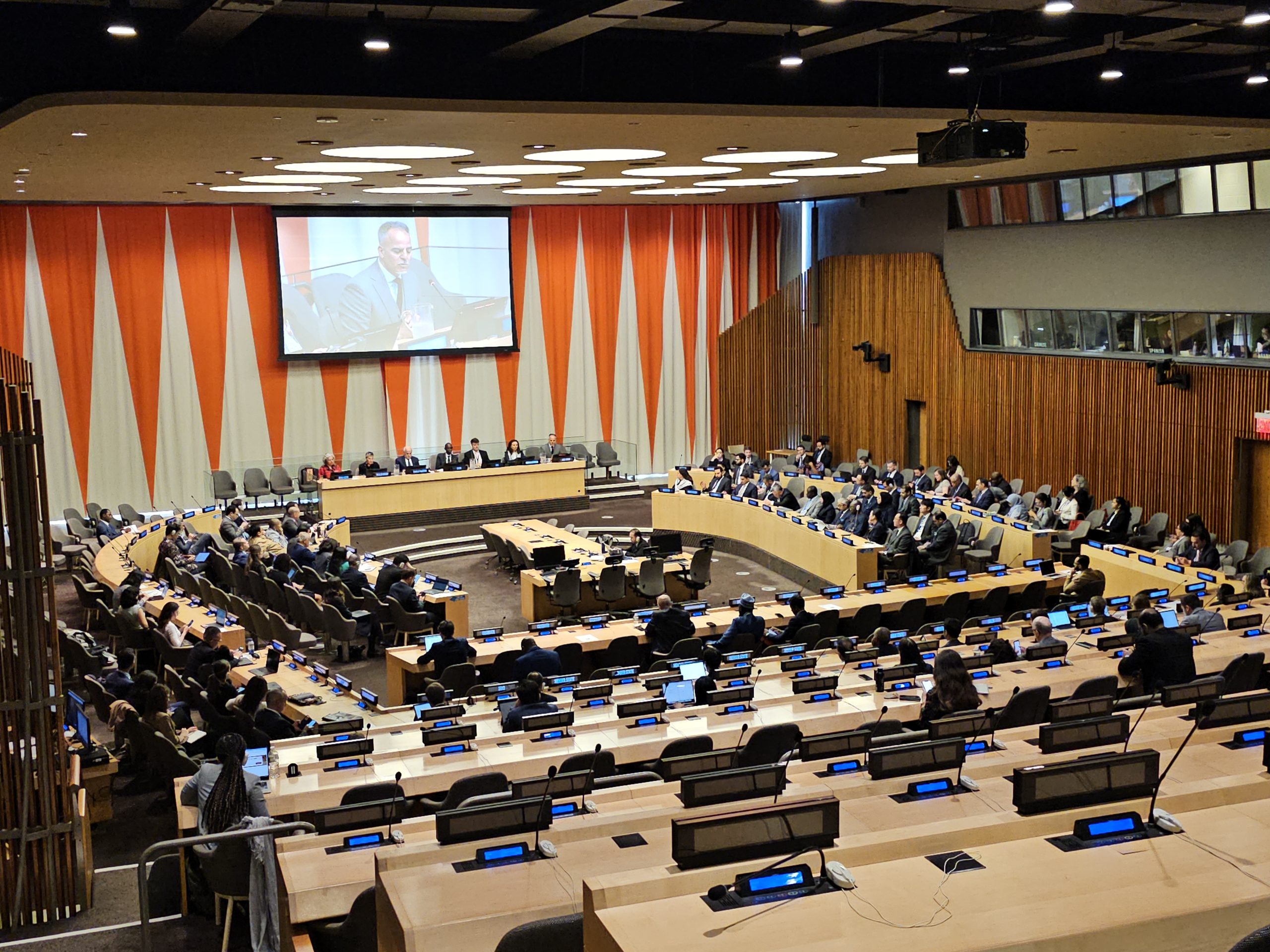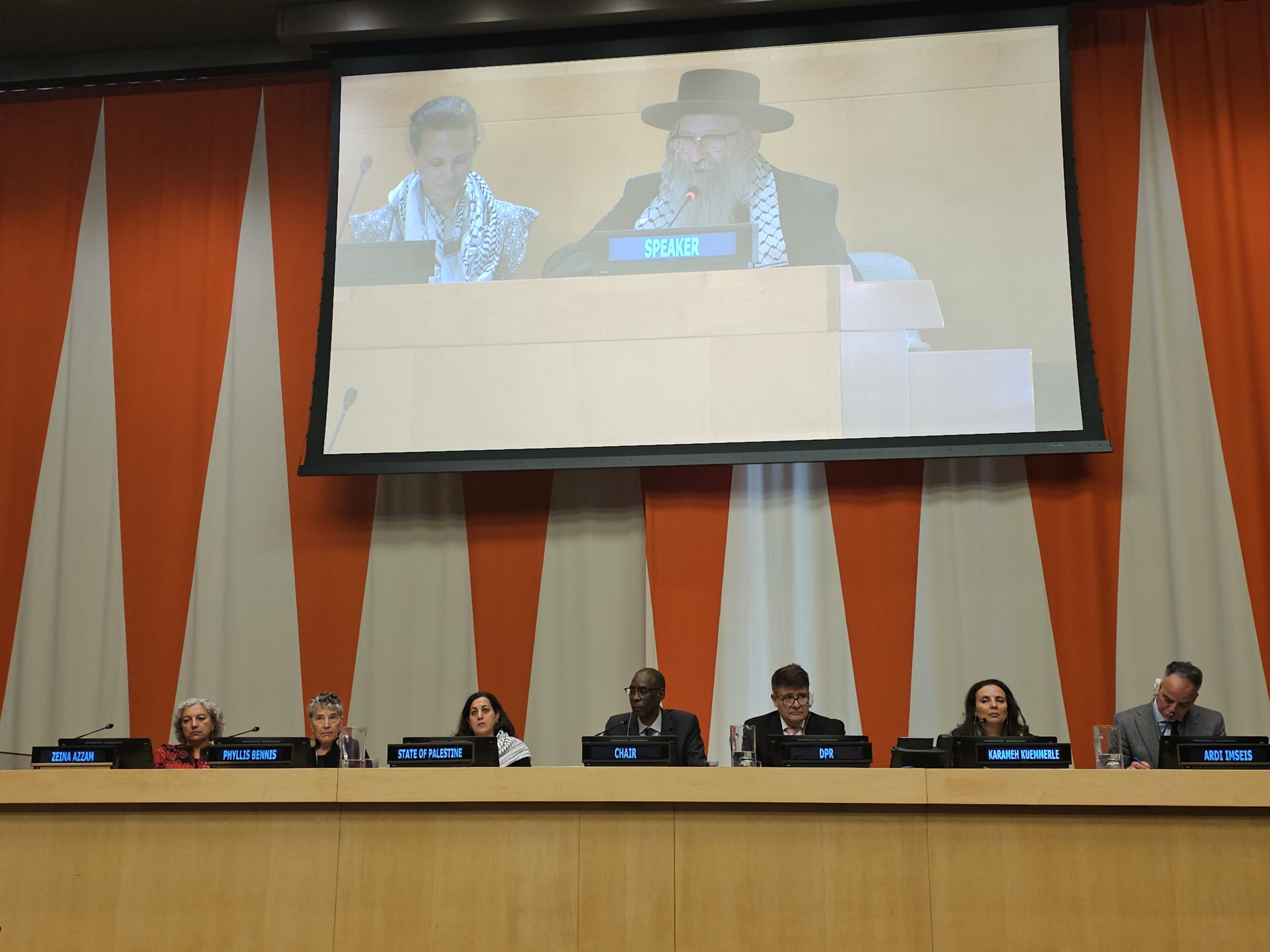The Panel discussion “1948-2024: The Ongoing Palestinian Nakba” was held under the auspices of the UN Committee on the Exercise of the Inalienable Rights of the Palestinian People (CEIRPP) on 17 May in the ECOSOC Chamber, UN Headquarters in New York. The event focused on the historical context of the 1948 events that lead to the mass displacement of Palestinians, a process still ongoing, and the responsibilities of the United Nations since 1948. The event also discussed the current situation in Gaza and escalating Israeli violations of international law in the occupied West Bank, including East Jerusalem. Participants also shared updates on solidarity movements across the world and on the support of the international community towards Palestinian rights, including under applicable international law and international humanitarian law.
In organizing this event, the Committee wished to highlight state responsibilities to address the situation faced by Palestinians since 1948 and brought forward testimonies on the recent atrocities committed during the latest Israel war on Gaza. The event also contributed to maintaining Palestinian memory and sharing the Palestinians people’s story with Member States and the public while highlighting obligations and avenues for action.
At the opening, the Chair of the Committee, Ambassador Cheikh Niang (Senegal), reminded of the events of 1948 and subsequent years that led to the dispossession and displacement of approximately 750,000 Palestinians from their ancestral land, a process that is still ongoing 76 years later. He also recalled that the war in Gaza had caused suffering unparalleled in recent history, with close to 40,000 Palestinians killed and almost 80,000 injured. The Chair drew a comparison between the events of 1948 and the current situation in the Palestinian Occupied Territory. While international attention was focussing on Gaza, Israeli attacks on Palestinians in the occupied West Bank, including East Jerusalem – by its security forces and armed illegal settlers – had increased. Demolitions and expropriations of Palestinian land and properties, arbitrary detentions of Palestinian civilians, including children, and the “Judaization” process of East Jerusalem were all different facets of an all-encompassing ongoing process that had affected the Palestinian people over generations.
The Israeli response to the atrocities conducted by Hamas and other groups on 7 October 2023 had been disproportionate and indiscriminate, putting the international rights-based system under intense threat as the perpetrators of grave breaches were not held accountable. Conflict had been spreading in the Middle East, the Security Council appeared paralyzed, and Member States divided. Ambassador Niang called on all the various actors and concerned parties – citizens of their States, civil society organizations, Governments, and international organizations – to play their part, working together, to achieve a lasting and immediate ceasefire.
The Committee vowed to continue to advocate for those rights in the General Assembly and the Security Council, through events, social media, publications, the development of capacities of the Palestinian Government, international conferences, panels and delegation visits. The State of Palestine had recently been officially recognized by all Caribbean Community (CARICOM) member countries. This wave of support would hopefully carry towards the rest of the region and beyond. The Chair also called upon the international community – Member States and civil society alike – to redouble their efforts to end the Israeli occupation, end the ongoing Nakba, and bring to reality the inalienable rights of the Palestinian people, including to self-determination and independence, and a just resolution to the plight of Palestine refugees.
The panelists included Phyllis Bennis, Fellow at the Institute of Policy Studies, Washington, D.C.; Ardi Imseis, Assistant Professor of Law at Queen’s University, Ottawa, and Karameh Kuemmerle, Assistant Professor at Harvard Medical School. Poems was recited by Palestinian poet Zeina Azzam.
Read the Chair Summary for more deatails.
Resources
- Programme
- Curtain raiser
- Expert bios
- Press release (English, French)
- Ardi Imseis remarks
- Chair summary










